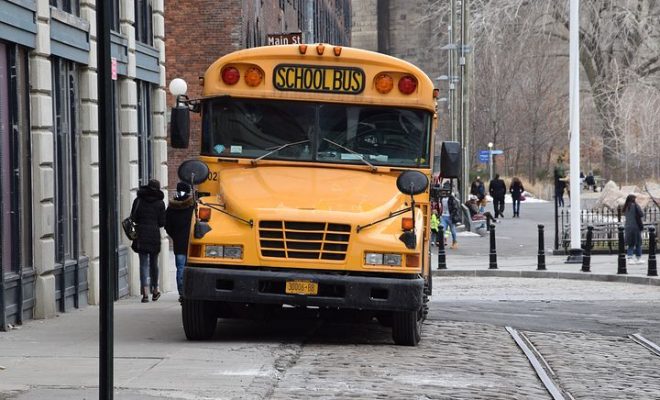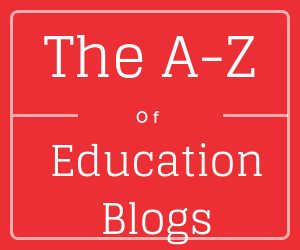Examining The Federal Government’s Role in Educational Reform

In the decades of attempted educational reform, the U.S. government has been the biggest player. Following the Nation at Risk report the federal government became more focused on the achievement of all students in the nation’s schools.
In 1994, the Goals 2000: Educate America Act passed with the goal of supporting states’ efforts to develop curriculum standards that would outline what students should know and be able to do, as well as state and district efforts to improve student achievement along the standards. The act did not stop at standards-based education. It included goals focused on safe schools, parental involvement, and teacher development, all of which ostensibly influence student achievement. And it also addressed goals for education from early childhood to adulthood. Goals 2000 included the following:
- All children in America will start school ready to learn.
- The high school graduation rate will increase to at least 90%.
- All students will leave grades 4, 8, and 12 having demonstrated competency over challenging subject matter, including English, mathematics, science, foreign languages, civics and government, economics, the arts, history, and geography; and every school in America will ensure that all students learn to use their minds well, so they may be prepared for responsible citizenship, further learning, and productive employment in our nation’s modern economy.
- U.S. students will be first in the world in mathematics and science achievement.
- Every adult American will be literate and will possess the knowledge and skills necessary to compete in a global economy and exercise the rights and responsibilities of citizenship.
- Every school in the United States will be free of drugs, violence, and the unauthorized presence of firearms and alcohol and will offer a disciplined environment conducive to learning.
- The nation’s teaching force will have access to programs for the continued improvement of their professional skills and the opportunity to acquire the knowledge and skills needed to instruct and prepare all American students for the next century.
- Every school will promote partnerships that will increase parental involvement and participation in promoting the social, emotional, and academic growth of children.
The NCLB of 2001 built on goals outlined in Goals 2000, and in many ways NCLB amplified and extended goals that originally appeared in Goals 2000.
NCLB is the leading federal legislation governing K–12 schooling. Its introduction meant that the federal government took a greater role in education in the United States. A major objective of NCLB was to decrease the achievement gap between students with low scores and those with high scores. Schools and districts not reaching stated annual progress toward the goal of removing the achievement gap would be penalized.
NCLB has divided opinion. It has been positively recognized for requiring a disaggregated format for student performance reports, enabling evaluation of the performance of different groups of students. This has particularly benefited disadvantaged students, whose performance was often overlooked in the past. However, as you’ll see in the following section, NCLB also has many detractors.
Reforming NCLB
Many have called for reform of NCLB itself. Suggested changes include removing the 2013–2014 target years for eliminating the achievement gap among different groups of children, because educators and policy makers alike believe the target year is unrealistic. Critics state that NCLB places too much emphasis on standardized testing and too little on the education of individual students. They also suggest that using standardized tests as the only measure of progress has led to instruction more aligned with students’ performing well on tests rather than learning a broad array of topics. Critics suggest that student growth should be a measure of the difference between students’ performance level at the beginning of the year and their performance level at the end of the year, rather than an arbitrary expectation for annual performance. And critics recommend expanding the measures used to determine student performance, so that standardized tests are not the only measures used.
The funding arrangements for NCLB are also the subject of discontent, with suggestions that much more funding is required to achieve the stated objectives. Under NCLB, states are responsible for the type and level of assessments given to students. Critics have suggested that variations across states in terms of levels of performance proficiencies makes it next to impossible to accurately compare performance across states. The focus on testing only mathematics and reading has also come under scrutiny, with suggestions that knowledge and skills in other subjects should be assessed as well.
NCLB requires states to staff their public schools with “highly qualified teachers.” This provision of NCLB can be viewed as a successful school reform measure, because research has shown that excellent teachers have a positive impact on student achievement. The provision seeks to ensure that students are taught well-prepared and highly qualified staff—teachers who know their subject matter and how to teach it.
Although not explicitly required by NCLB, gaining National Board Certification is one way to become a highly qualified teacher. National Board Certification is an advanced teaching credential that is offered by the National Board for Professional Teaching Standards. It supplements, but does not supplant, a state teacher license. National Board Certification is achieved on successful completion of an optional assessment initiative intended to identify effective and accomplished teachers who meet high standards based on what teachers should know and be able to do.
National Board Certification is available nationwide for most pre-K–12 teachers and has been a positive school reform measure since its inception. Whatever your thoughts on educational reform, National Board Certification is a powerful tool to have in your toolbox to help you be an effective educator and voice for change.






